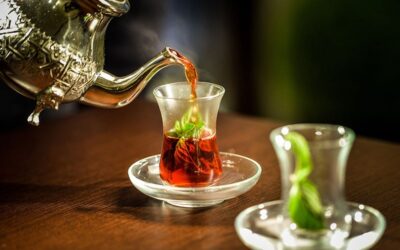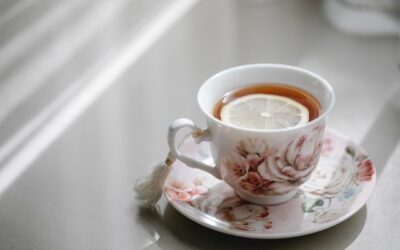Hibiscus Tea: Tea Remedy for High Blood Pressure
Hibiscus Tea
Ever wondered what is the effect of Hibiscus Tea for Blood Pressure? Hibiscus is a tropical plant, with flowers that can grow as tall as 12 feet. These big flowers bloom from late summer into early fall. They have different colors, like red, pink, yellow, orange, and purple. Its leaves can be used for food, and the petals are usually dried and used to make tea. It’s said to have medicinal properties that include helping to prevent fevers, relieve pain, and lower blood pressure.
The part of the hibiscus plant that protects and supports the flower is called the calyx. The dried calyces are used to make hibiscus tea.
Other drinks made from the hibiscus plant include:
- red sorrel
- agua de Jamaica
- Lo-Shen
- Sudan tea
- sour tea
- Karkade
Herbal teas may not be as popular as black and green teas, but they continue to make noise in the tea market because of the health benefits they give.
Hibiscus Tea Benefits
Hibiscus tea is naturally packed with vitamins, minerals, and antioxidants. This provides a whole lot of health benefits if consumed on the daily. These benefits include:
- Reduce Cholesterol Levels
- Improve Liver Health
- Cancer Prevention
- Promote Weight Loss
- Antibacterial Properties
- Lower Blood Pressure
Research has found a range of health benefits linked to drinking hibiscus tea – from lowering your blood pressure to fighting bacteria and even aiding weight loss. Studies have demonstrated that drinking hibiscus tea may lower systolic and diastolic blood pressure. However, you should not drink hibiscus tea with hydrochlorothiazide (a diuretic medication often used to treat high blood pressure ) to prevent an interaction.
For instance, a 2008 study presented at the American Heart Association (AHA) meeting showed that drinking three cups of herbal tea containing hibiscus each day lowered blood pressure among healthy men and women with modestly elevated blood pressure. Managing diet could be an effective way of both preventing and treating this deadly condition.
Hibiscus Tea Nutritional Contents
One small iced hibiscus breeze tea cooler contains:
| Calories | 79 |
| Protein | 0 grams |
| Fat | 0 grams |
| Carbohydrates | 20 grams |
| Fiber | 0 grams |
| Sugar | 20 grams |
Hibiscus tea is packed with Vitamin C — a nutrient that plays many essential roles in the body. These include:
- Tissue growth and repair
- The maintenance of cartilage, bones, and teeth
- Wound healing
- The formation of collagen
- Iron absorption
Vitamin C — (also known as ascorbic acid)— is also an antioxidant. It helps boost your immune system and may help to prevent cell damage caused by free radicals in the body. This can reduce your risk of developing many significant health complications such as heart disease, diabetes, and cancer.
Potential Risks Of Hibiscus Tea
Hibiscus and Mallow Allergies
If you’re allergic or sensitive to hibiscus flowers (or other plants in the mallow family), you should avoid drinking hibiscus tea.
Medication Interactions
Hibiscus tea may interact with certain medications. It can decrease the effectiveness of the malaria drug chloroquine. If you take medications for high blood pressure or diabetes, it can cause a significant drop in blood pressure. The plant also contains phytoestrogens (or plant estrogens) that may decrease the effectiveness of birth control medication.
Pregnancy Concerns
The phytoestrogens in hibiscus tea may cause complications during pregnancy. For instance, they may trigger preterm labor. If you are pregnant or breastfeeding, you may want to avoid hibiscus tea or look for an alternative.
Liver Damage
Some research points toward high concentrations of hibiscus extract — potentially causing liver damage.
Forms Of Hibiscus Tea
Hibiscus may be available in the following forms:
- single tea bags
- ready-to-drink tea
- loose flower petals
- liquid extract
- encapsulated powder
Grow Your Own Hibiscus
Hibiscus are considered tropical plants because they can grow well in hot weather. The leaves of the hibiscus plant look like small flowers. Hibiscus can be grown from seed, cuttings, or by division. In warm regions, it can grow year-round indoors as a houseplant, or outdoors as a seasonal vegetable. There are more than 1,500 different species of hibiscus and they are found worldwide.
Choose The Right Type Of Hibiscus Plant
Tropical hibiscus plants are what you think of when you picture lazing by the pool in Florida. They grow well in full sun and can only survive outdoors in the winter in zones 10-12. In cooler areas they make great container plants, and are sometimes available as “standards,” or little hibiscus “trees.”
Perennial hibiscus plants can survive the winter in zones 4 to 9. Perennial hibiscus blooms in mid to late summer. Flowers are typically white, pink, lavender, red, or burgundy. If you have a smaller garden, look for a dwarf variety.
When And Where To Plant Your Hibiscus
All hibiscus plants grow best in full sun. Tropical hibiscus needs moist but well-drained soil. Keep it inside until nighttime temperatures are consistently above 50 degrees. Perennial hibiscus grows best in moist soil that never completely dries out (this type can handle a bit more water than tropical hibiscus). Plant perennial hibiscus plants in the spring so that they have an entire growing season to establish a good root system.
Plant Your Hibiscus
To plant perennial hibiscus, dig a hole that is twice as wide and just as deep as the plant’s root system. Remove the plant from its plastic pot and settle it into the planting hole. Fill in around the root ball with a 50:50 mixture of the soil you removed.
To plant tropical hibiscus, select a container that is no more than twice as wide as the plant’s root ball. Fill the container 1/3 of the way with a potting mix and soil, and set the plant in the container so that the top of the root ball is about 1 inch below the lip of the container. Fill in around the root ball with more potting mix.
Water generously after planting.

Step-By-Step Egyptian Tea Recipe (& It’s Benefits)
There are several ways to prepare hibiscus or Egyptian Tea from recipes . Everything depends on how strong and sweet your preferred beverage is. You may drink karkade hot or chilled. Most...
Benefits Of Jade Citrus Mint Tea (And, Where You Can Buy It)
What happens, if you learn that there is a tea that has a host of health advantages? Naturally, it also has excellent flavor and ingredients that refresh your body and mind. Welcome to Jade Citrus...
Hibiscus Tea: Is It Good For A Pregnant Woman?
Ever thought how hibiscus tea will affect your pregnancy? Does the thought of pregnancy tea sound intriguing to you? This might help ease your aches and pains while you're expecting. It's also known...




0 Comments